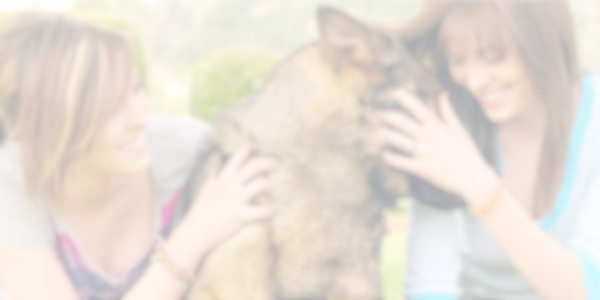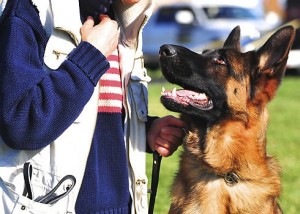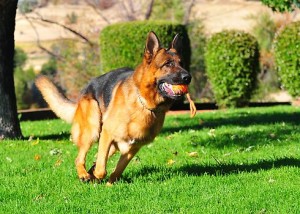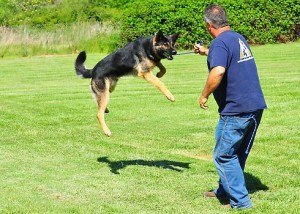From Good Owner to Responsible Handler
Many people may be good dog owners, but may still fail as responsible dog handlers. Their dogs are well-fed, well-cared for, and properly exercised, but as “handlers” these people seem rather clueless about the training and behavior of their dogs. We hear all the excuses: “Oh, my dog is just really friendly,” “He just wants to say hi,” “I don’t understand; she usually listens to me at home,” “He normally always comes when I call him…most of the time,” and so on. Becoming a responsible dog handler requires a greater level of effort, dedication, and skill than that required for being a good dog owner. So what sets a good dog handler apart from the rest?
A good dog handler properly socializes and trains their dog in order to prepare them for a disciplined life among human society. The dog is carefully exposed to the world in positive ways, and is thoroughly trained in basic obedience. Responsible handlers train their dog humanely, and train in all types of locations and in all types of situations. Training and socializing are on-going throughout the first several years of the dog’s life, rather than occurring for a six-week period during one obedience class. Manners and basic obedience both require a large amount time and effort to train reliably; the responsible handler invests both of these in their dog for the lifetime of the animal.
A responsible handler always ensures that the dog is under their direct control. This can be physical control or verbal control, but a higher degree of training is required to achieve verbal control. Our well-trained German Shepherd Dogs for sale, family protection dogs, and competition dogs all have a mastery of basic verbal commands, which is part of the requirements of a Schutzhund/IPO title. But this type of obedience comes through hours of vigilant training and proofing. Unfortunately, many people will not put in the time and effort to thoroughly train their dogs for verbal control; we see them at the park all the time shouting “Come! Come! COME!” at their dogs, who are running freely across the field and blissfully ignoring their handlers. Until verbal control is mastered, responsible handlers rely on physical control (using a leash), and will not put the dog in a situation that allows him to ignore or blow off commands.
The responsible handler is always aware of their surroundings, keeping an eye out for potentially unsafe situations and not relying on other people to be “responsible” with their own dogs. Loose dogs, unattended children, and local wildlife can all create situations that become tense and stressful to the dog. A good handler is aware of these potential problems, and will take steps to avoid or diffuse tense or unsafe situations. The safety of their dog is a top priority.
The good handler takes control of situations to ensure positive interactions between their dog and their surroundings. Taking control of situations may involve changing locations, calling the dog and leashing him, or even putting a dog in a ‘down-stay’ or ‘sit-stay’ in order to ease the discomfort of people afraid of their dog. Good handlers do not leave circumstances up to chance, but instead proactively seek positive training opportunities, socializing opportunities, and social interactions. They also take steps to avoid confrontations, unsafe situations, or negative experiences.
Most importantly, the responsible handler becomes a student of their dog. They learn how to read their dog’s body language and mental state, and adapt their own behavior accordingly. They learn which rewards are highly valued by their dog, and then use this to their advantage. They observe which situations cause their dog to lose focus or “trigger” undesirable reactions, and then adjust their training to address the problems, rather than just make excuses for their dog’s behavior. The responsible handler is constantly learning who their dog is, and then adjusts their training .
Responsible handlers work to develop and maintain a positive relationship with their dog built on trust and leadership. With a little dedication, effort, and skill-building, any good dog owner can also become a responsible dog handler.




